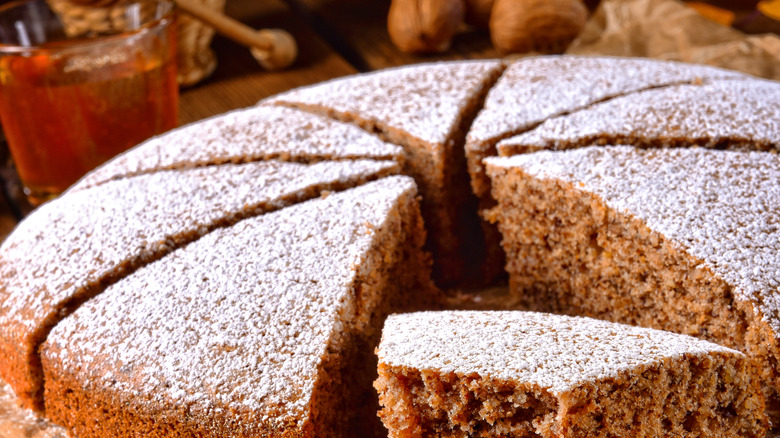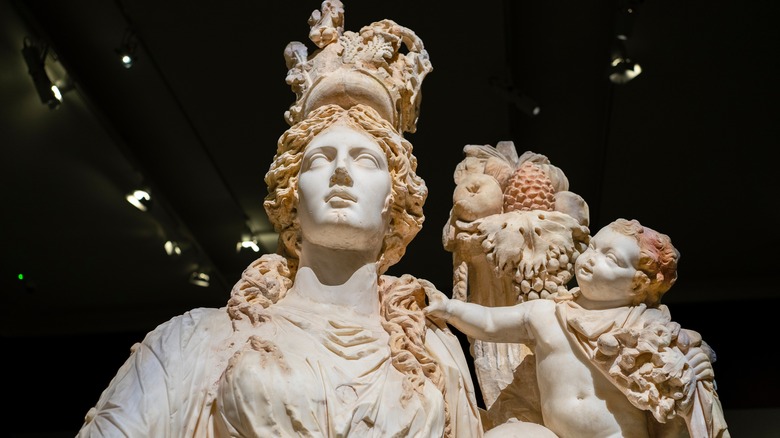The Ancient Roman Origins Of Birthday Cake
When it comes to the length and breadth of the ancient Roman Empire, birthday celebrations aren't usually the first thing people think of. Upon closer consideration, however, it seems fitting for a culture that invented the riotous festivals of intoxicated excess known as Bacchanalia to see one's birthday — otherwise known as dies natalis in Latin — as a reason to celebrate. Historical Roman poets such as Ovid make mention of celebratory honey cakes that were often baked as part of birthday celebrations. Not only were these ancient sweets a welcome sign at all kinds of celebrations, food historians can trace the evolution of Italian baking back to this point in time.
Romans took their feasting seriously, which meant that times they were set to celebrate big events (like birthdays) often adopted a religious tone as they praised the gods and goddesses of their pantheon while asking them for help and protection throughout the coming year. And it turns out, birthday cake was a big part of this process. While the tradition of enjoying some birthday cake has endured for thousands of years, there were a few differences that set the ancient Roman birthday celebration apart from modern traditions.
Ancient Roman birthdays were religious events
For the citizens of ancient Rome, birthdays were a cause for celebration among friends and family, but they were also somber occasions of self-reflection. According to the dominant religion of the time, each person had a sort of spiritual attendant — the "genius" for men and the "juno" for women — who was responsible for guiding them through their lives. These religious figures were thought to represent a divine spark within each person, much like the soul in modern theology.
Before cutting loose for their birthday celebration, Roman citizens would first spend time praying to their respective genii or Junii, followed by making them offerings of items they might enjoy. Among these offerings would be wine, fruit, or even the occasional ancient fig pizza, but the Roman honey cake made from spelt flour, pine nuts, honey, eggs, and a sweet raisin wine known as passum was a favorite. When it came time to evoke the spirit of Bacchus at one's birthday celebration, these honey cakes were also served as a way to mark the occasion, though it is doubtful that lit candles and party hats were also part of the celebration.
Other important birthdays throughout the year
In addition to celebrating individual birthdays, ancient Romans were fond of celebrating the dates when certain cities or temples were built or the birthdays of emperors. These occasions would see plenty of celebratory feasting and drinking, and honey cakes often made an appearance during these events as well. It was often common for people to commemorate the birthdays of friends and family from afar and in a manner that was much more formal than sending a greeting card through the mail. According to Kathryn Argetsinger of the University of California Press, those who could not be present for a friend or relative's individual birthday observance would set aside time for prayer and offering wherever they were.
As Roman religion often found itself mingled with matters of social norms and practices, it's interesting to think about the role baking and sweets have had in birthday rituals that have taken place over thousands of years. Regardless of where birthday cake originated or how it's decorated, the idea that humans have always celebrated another turn around the sun with good eats is just as sweet as honey.


